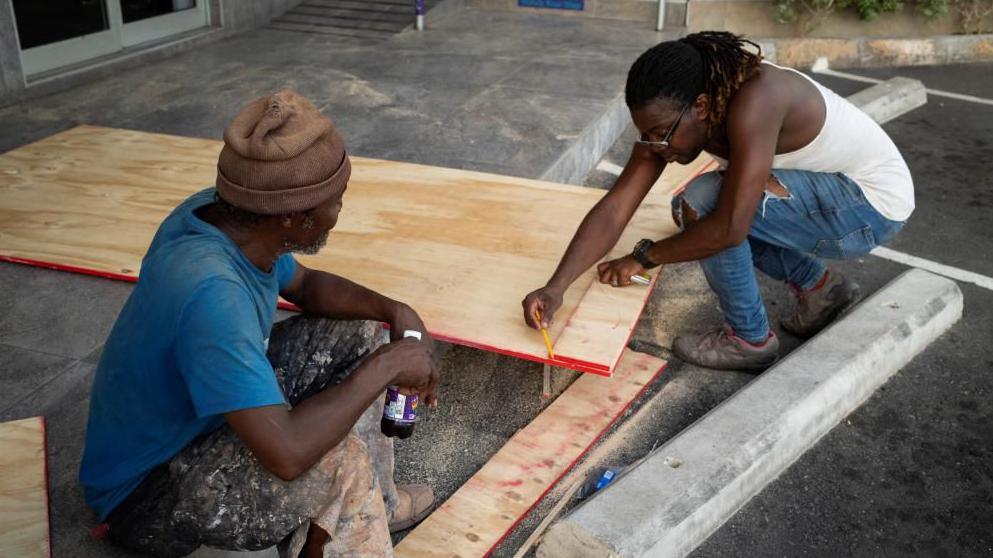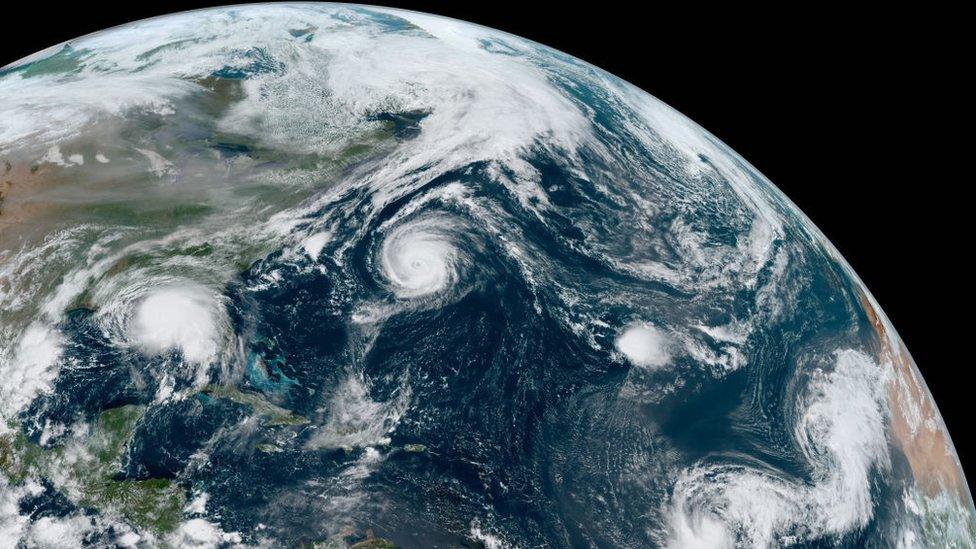'Almost whole island homeless' in Hurricane Beryl's wake
Watch: Union Island resident explains impact of Hurricane Beryl
- Published
Having survived the night as Hurricane Beryl tore across her idyllic home of Union Island with ferocious force, Katrina Coy was taken aback by the extent of the devastation which lay before her.
Virtually every building on the island, which lies off St Vincent, has been razed or badly damaged, she said.
“Union Island is in a terrible state after Beryl passed. Literally, almost the whole island is homeless,” said Ms Coy in a video message.
“There are hardly any buildings left standing. Houses are flattened, roads are blocked, the electricity poles are down in the streets.”
Fisherman and fishing guide Sebastien Sailly agreed.
“Everything is lost. I have nowhere to live right now,” he said.
A resident of Union since 1985, he lived through Hurricane Ivan in 2004. But Hurricane Beryl, he said, was on another level.
“It’s like a tornado has passed through here. Ninety percent of the island – easily 90% – has been erased.”
The extent of the shock and fear is still evident in his voice.
“I was sheltering with my wife and daughter and, to tell you the truth, I wasn’t sure we would make it out at all.”
His cousin, Alizee, who runs a hotel with her family, described a horrific experience as Beryl passed over their town.
She said they had to push furniture against the doors and windows to keep the sustained winds and huge gusts from blowing them open.
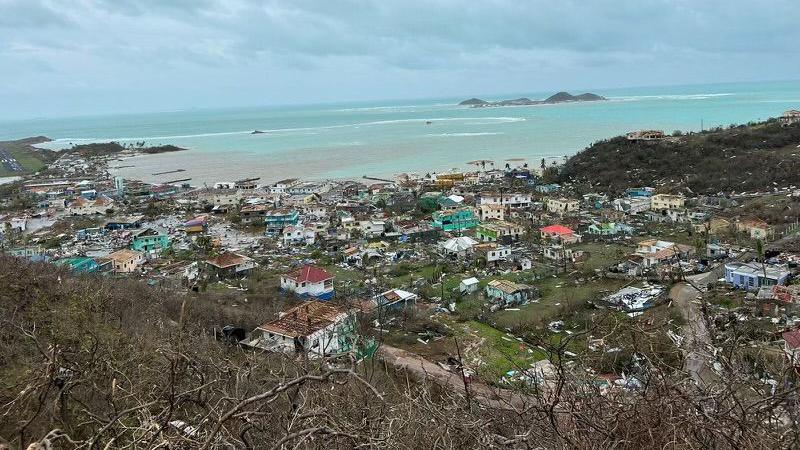
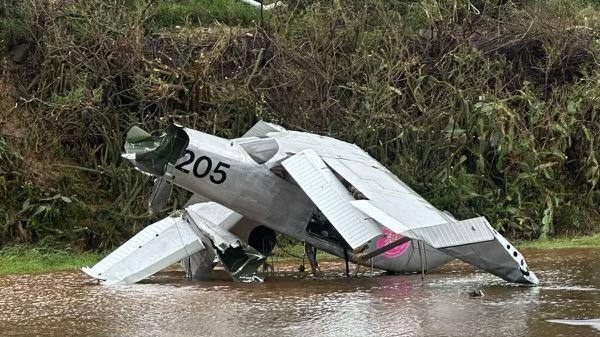
“The pressure was so intense that you felt it in your ears. We could hear the roof coming apart and smashing into another building. Windows breaking, flooding.”
“No one knew it would be this bad, everyone is traumatised.”
An organic farmer and beekeeper as well as a fisherman, Sebastien’s two farms and his beehives have been completely destroyed as well.
Still, he said the community’s immediate priority is shelter. People have been trying to gather wood and plastic sheeting to make some kind of temporary accommodation for their families.
“And obviously, finding water and food is going to be tough,” he added.
Alizee Sailly said many other goods are also urgently needed on Union Island – from tinned foods and powdered milk to sanitary products, first-aid kits and tents.
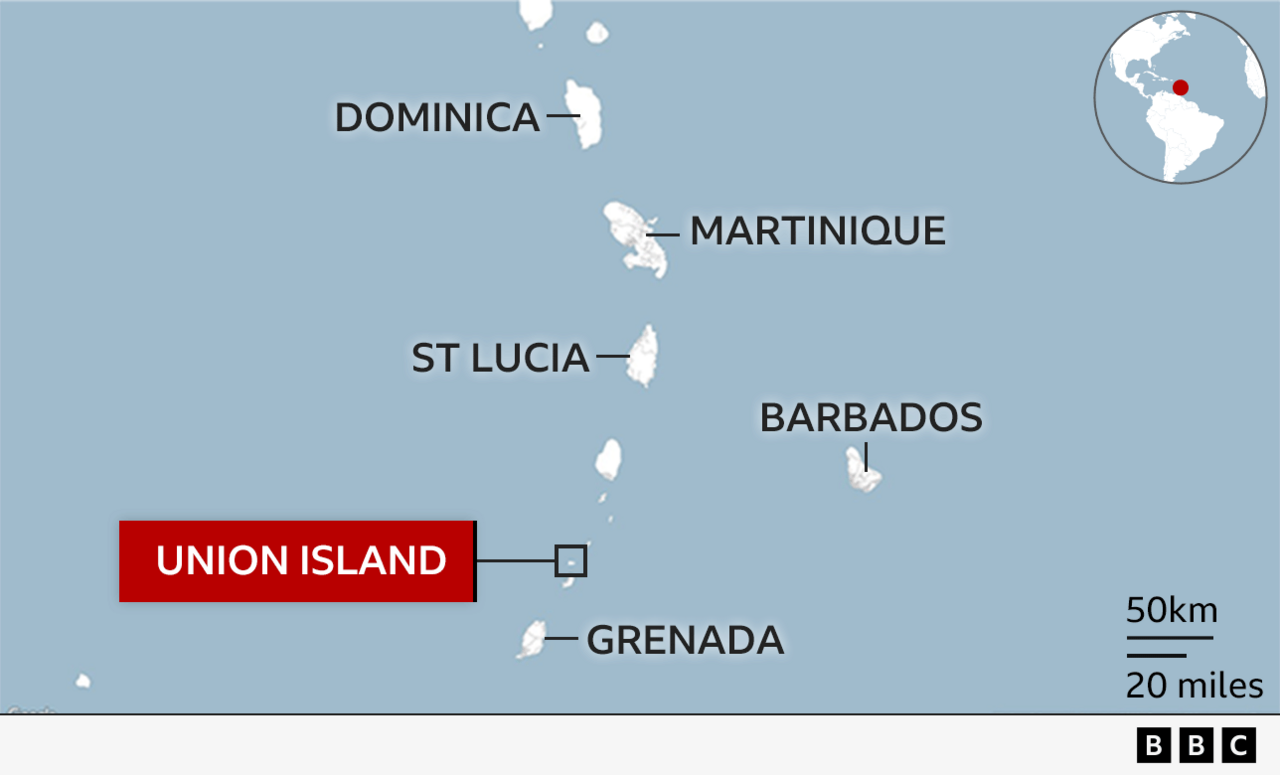
Plus, of course, generators.
With power and communications still down, she has only managed to send out messages by connecting to the Starlink network launched by Elon Musk's SpaceX.
For its part, the government in St Vincent and the Grenadines says it recognises the scale of the problem.
In a morning address, Saint Vincent and the Grenadines Prime Minister Ralph Gonsalves summed up the sense of the shock across the Caribbean nation: "Hurricane Beryl – this dangerous and devastating hurricane – has come and gone and it’s left in its wake immense destruction. Pain and suffering across our nation.”
He also promised to react as quickly as possible to tackle the long list of post-hurricane priorities facing his administration.
On Union Island, however, there remains some scepticism that the government has the funds, resources and manpower to cope.
“I hope they can send us the military and the coastguard to help us. I have no idea if they’re able to rebuild the island but I don’t think so”, said Sebastien. “This is going to take billions, it will take a year or more and is going to need international help.”
Katrina Coy, the director of the Union Island Environmental Alliance, also implored members of the Caribbean diaspora to help in any way they could.
“We’re in dire need of help. Emergency kits, food, evacuation, all of that is needed in this moment.”
For years, Ms Coy has carried out crucial work for Union Island’s water security, a vital resource for small island communities in the Caribbean.
Heartbreakingly, her international colleagues say, that work has been lost to Hurricane Beryl.
Beryl hit land on Monday as a category four hurricane, with sustained winds of 150mph (240km/h).
Thousands of people are still without power and many are in temporary shelters in St Vincent and the Grenadines, Grenada and St Lucia.
Yet despite the chaos and the homelessness across every inch of the island Sebastian Sailly said he was just thankful things weren’t even worse.
“The most important thing is that we are still alive, not the material losses.”
“After witnessing the power of what we went through, today I was just pleased to see my neighbours were still here.”
Get in touch
Are you in the affected region? If it is safe to do so, get in touch.
Related topics
- Published4 July 2024
